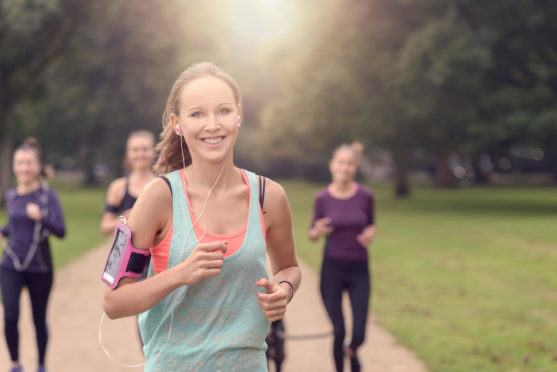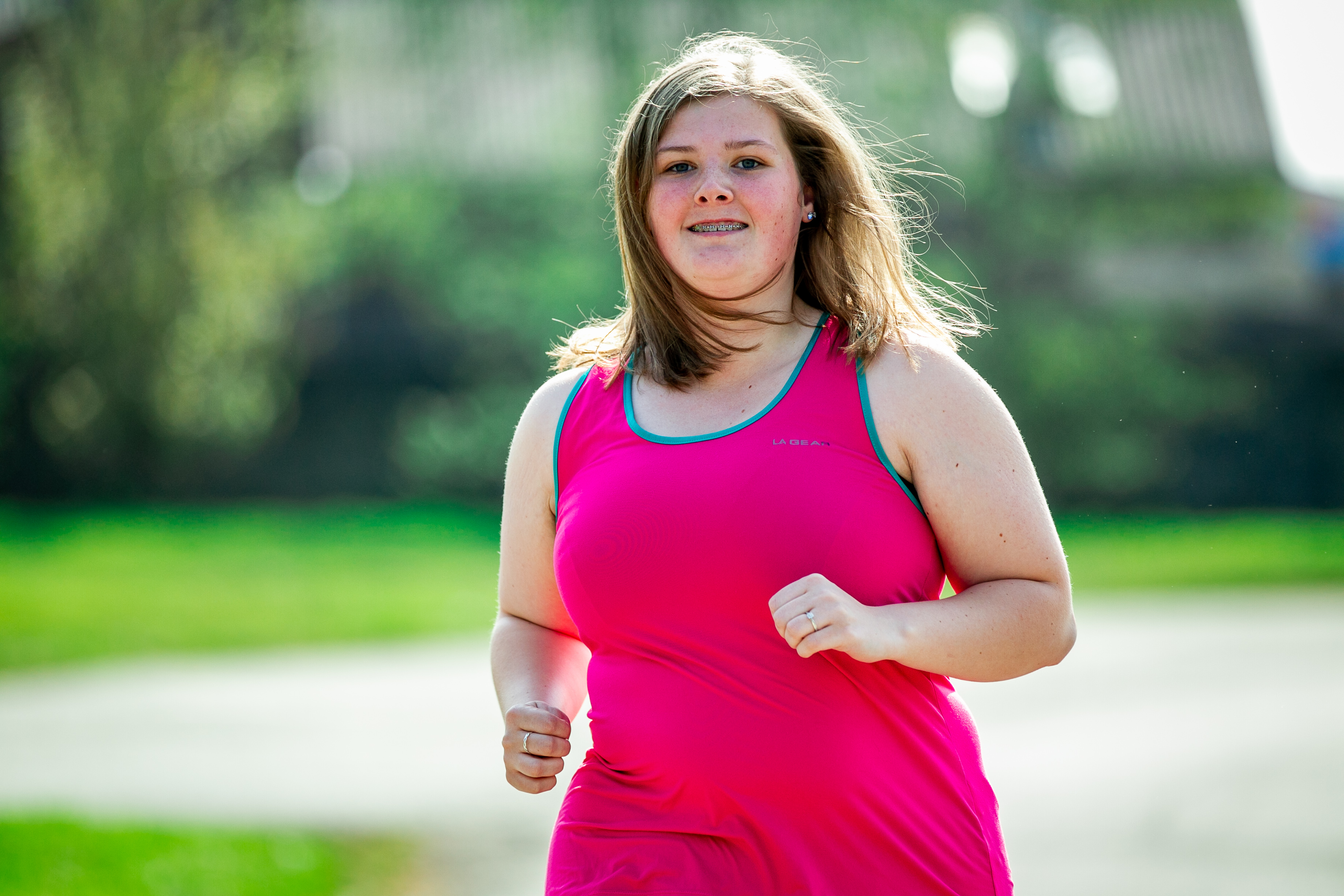
You can’t run away from your problems, they say, but maybe they’re wrong.
Running is now hailed as one of the most effective ways to improve mental health, with experts suggesting that exercise can be so mood enhancing that, in some cases, it is replacing antidepressant medication.
Next month marks Mental Health Awareness Week – and a chance to get the nation involved in talking about and acting upon the subject of fitness and mental health.
Sportscotland will be teaming up with the Scottish Football Association and Scottish Rugby Union to host a conference highlighting mental health in sport at professional level.
And the Scottish Association for Mental Health (SAMH) will be promoting its Mental Health Charter for Physical Activity and Sport, which encourages sporting organisations and clubs, from grassroots to elite levels, to pledge support to ensure there is no barrier to engaging, participating and achieving in physical activity and sport for anyone with a mental health problem.
The charity is also calling for free exercise on prescription, and exercise referral schemes to be open to people across the country.
Even light physical activity, according to experts, can have a huge impact on mental health.
Head of sports medicine at Sportscotland Dr Niall Elliott said: “Evidence has shown that doing just 150 minutes of light exercise a week can not only reduce things like diabetes, heart problems and some cancers, but can also decrease the risk of developing mental health issues like depression and anxiety by a third. People with an active lifestyle are more likely to eat better, sleep better and have a more socially active life.
“They’re also less likely to have time off work or be unemployed.
“We all have different issues in our life, from bereavement to money issues, but 25% of us will suffer from a mental health issue in our life.
“And one in 15 of us will contemplate self-harm in our lives.
“The figures are pretty staggering.
“Life deals cruel issues to patients, from bipolar and schizophrenia to PTSD, but science shows that giving them a tool like sport can help.
“In fact, many mental health patients taking up physical activity have been able to use it as an antidepressant and reduce their medication or even come off it entirely.
“Sport creates a hormonal release and more serotonin which is the mood hormone, it improves the heart function, circulation and helps the body get rid of waste products quicker. It even has an effect on the nerves.
“And good heart health means decreased risk of stroke and dementia by 20%.”
Professor Ewan Gillon, clinical director of First Psychology Scotland, added: “People are like animals. If you didn’t walk a dog all day, it would go stir crazy, and it’s the same with us and exercise.
“Exercise has a real feel-good factor. It gives us a sense of feeling better and of achievement. It also provides a distraction from your troubles, and a great excuse to get outside, breathe in the fresh air.”
Scottish swimming champion Michael Jamieson, who won a silver medal at the Olympic Games in London 2012, struggled with depression as an elite athlete.
He went from the high of an Olympic medal to the dark lows of mental illness. But he found getting back into sport as a hobby massively aided his recovery.
“It wasn’t sport that led to my depression, but how, as a professional athlete, I processed it.
“I became addicted to personal development and when you’re talking about bettering your performance by hundredths of a second, it can become intense.
“But I found sport for enjoyment, rather than with a competitive edge, really helped me through. I was able to go back to sports I used to do before swimming – and take up some new ones.
“I played football, went skiing, played tennis, took up golf and went out running too.”
The 30-year-old, who runs a swim academy in his home city of Glasgow, added: “I was on antidepressants, but I didn’t like taking them. I found sport relaxing. It was a major factor in helping lift my mood and helped me on the road to recovery.”
How to encourage more Scots to benefit from the life-changing ability of sport and exercise was debated at Holyrood on Thursday when MSPs discussed SAMH proposals including free gym membership or fitness classes for people with mental health issues or staff specifically trained to help people with mental health get started in sport.
And equal access to exercise referral across Scotland. Medical guidelines set out by NICE and SIGN for the treatment of mild-moderate depression include prescribing exercise referral schemes but access to schemes can be limited depending on where a person lives.
A SAMH spokesperson said: “We welcome the progress made by the Scottish Government to increase physical activity levels. But there is more to do to in order to achieve a Scotland where everyone is supported and enabled to be physically active, ultimately improving Scotland’s mental health.”
Running changed my life: I no longer need medication and I’ve lost three stone.”
Emily Wallace used to think running wasn’t for her.
But now she’s sprinting the soles out of her trainers – and says taking up the sport has led to a medication free life.
The 22-year-old, from Irvine, first started running three years ago to help her lose weight.
However she has since discovered it’s the perfect passion to help manage her battle with bipolar disorder.
She remembers falling ill eight years ago: “I was just exhausted all the time and sleeping for up to 23 hours a day.
“My mum took me to the GP who referred me to psychiatry for depression.
“It was only after a year of tests and medication that I was eventually diagnosed with bipolar disorder.
“I was prescribed lithium which started to level out my emotions.
“Mentally, I felt much better but there were physical side effects.
“I couldn’t sleep, my energy levels were down…and it led to weight gain.
“I ballooned from 12st to over 17st because of the medication.
“I knew I didn’t want to be on the medication forever, but I didn’t know how I would cope without it.
Emily was told by cardiology she needed to lose weight, so decided to start walking.
“One day I was out for a walk but wanted to get home quicker so I ran.
“I got quite a buzz.”
She decided to try running, starting small at first.
“I would run for a lamppost, then walk for a lamppost…then I got a bit more technical, running for a minute, then walking for a minute.”
Now Emily is training for her second 10k as she prepares to take on the Great Scottish Run in September.
“I just love running,” she said. “I go out around three times a week. I no longer need medication – and I’ve lost three stone.”
Emily, who is currently studying Early Years at Ayrshire College added: “I feel the best I have for a long time. Running changed my life.”

Enjoy the convenience of having The Sunday Post delivered as a digital ePaper straight to your smartphone, tablet or computer.
Subscribe for only £5.49 a month and enjoy all the benefits of the printed paper as a digital replica.
Subscribe